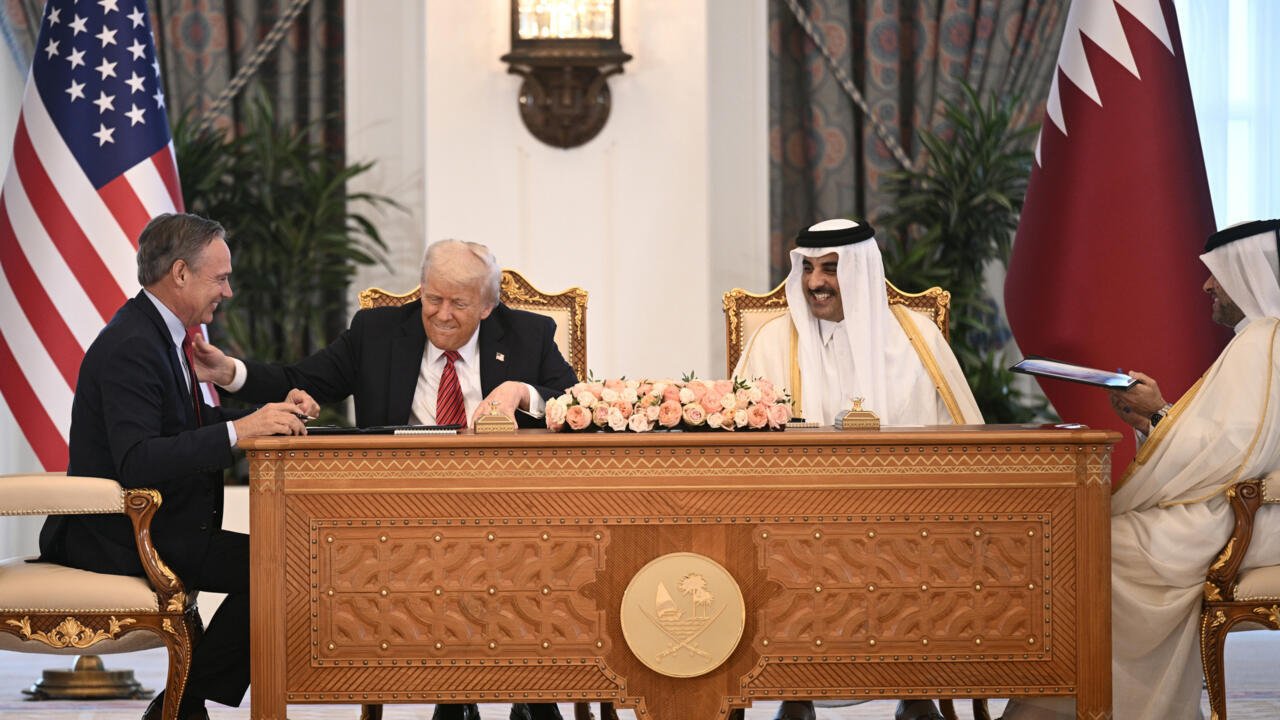DOHA, QATAR: Former U.S. President Donald Trump signed high-profile agreements with Qatar’s Emir Sheikh Tamim bin Hamad Al Thani on Wednesday, deepening bilateral ties through military and commercial deals.
The agreements include Qatar’s intent to purchase Boeing aircraft and MQ-9 drone systems from the U.S., alongside various letters of intent promoting cooperation. The ceremony, held in Doha, follows what Al Thani described as a “great” conversation with Trump, further strengthening the U.S.-Qatar alliance.
“These agreements have elevated our relationship to another level,” said the Emir during the joint press briefing.
However, the developing alliance has sparked renewed scrutiny in Washington. Reports suggest the Trump administration may accept a temporary replacement for Air Force One—reportedly a free jet offered by Qatar’s royal family—raising ethical and security concerns.
“I’m worried about the safety of the president,” said Senator Rick Scott (R-Fla…). Qatar supports Hamas. That’s not what a great ally looks like.”
The remarks reflect lingering skepticism, especially given Trump’s past criticism of Qatar. In 2017, Trump publicly accused the Gulf state of funding terrorism at “a very high level.” Despite this, Qatar was designated a major non-NATO ally by President Joe Biden in 2022, reflecting its strategic importance to the U.S., including hosting the Al Udeid Air Base—home to U.S. Central Command operations in the region.
Qatar has also emerged as a key diplomatic player in Middle Eastern peace efforts. A recent Israeli delegation visited Doha for ceasefire talks amid the ongoing war in Gaza. Qatar also played a vital role in mediating the release of hostages held by Hamas, including American Edan Alexander, freed earlier this week.
In March, joint U.S.-Qatari diplomacy secured the release of George Glezmann, an American held in Taliban custody for over two years, reinforcing Qatar’s growing clout in international negotiations.
As Qatar’s influence expands and U.S. ties deepen, questions linger over the geopolitical implications and Washington’s strategic alignment in the Gulf.








Average Rating